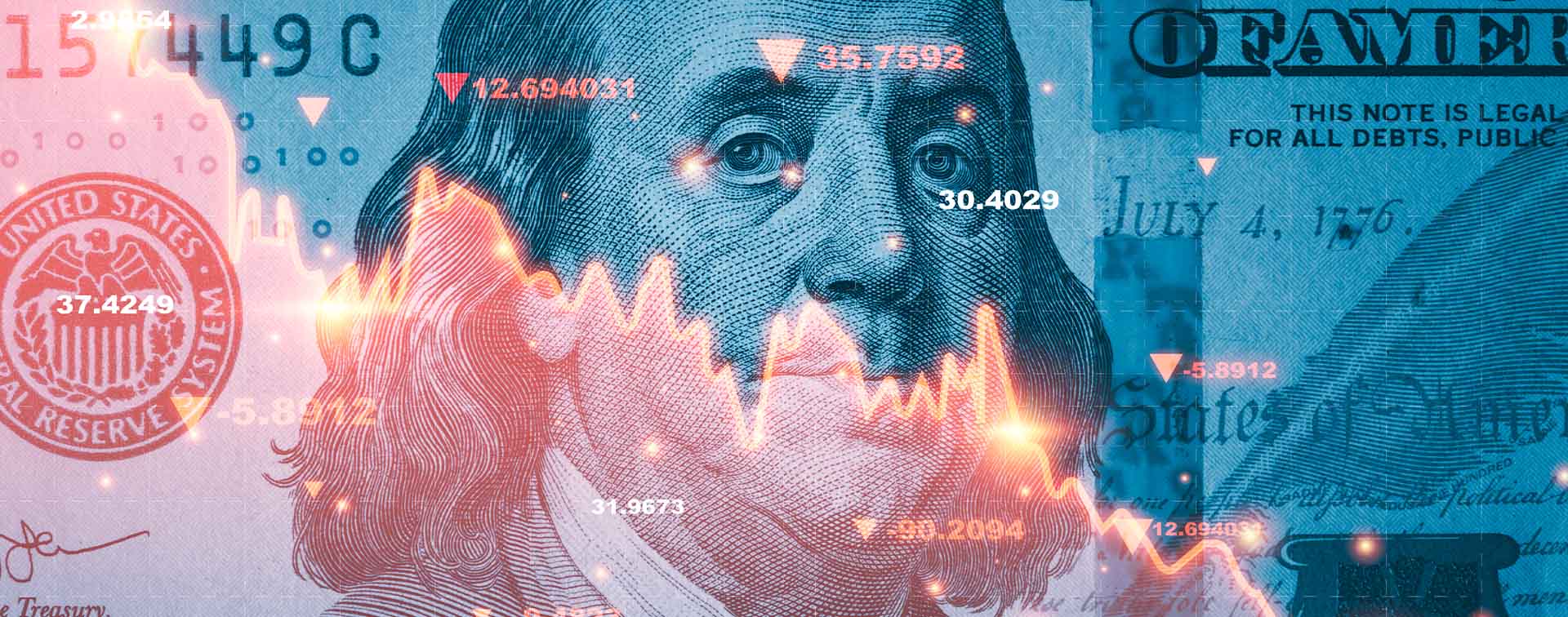
Jeff D. Opdyke is a global investment expert for International Living who has been investing overseas for 30 years, and the author of 10 books on investment and personal finance.
For all its remarkability, the human brain has one particularly nettlesome blind spot: The unwavering acceptance that every tomorrow is going to look a whole lot like every yesterday.
Behavioral economists call it “recency bias” or “status quo bias”. What’s normal now is most likely what remains normal for an unending string of tomorrows. For the brain, it’s just easier to believe that to be true than to process and react to an unknowably large number of possibilities.
So, every tomorrow equals every yesterday. And we go about our life.
Alas, the status quo is never really static. It’s ever-changing. But like that proverbial frog in the proverbial pot of water set to boil over an interminably slow period, the frog never realizes his status quo is cooked until he is.

Which is an analogical backdoor into a long-standing status quo bias now facing upheaval: dollar hegemony.
Since a group of nations gathered at a resort hotel in Bretton Woods, New Hampshire in the waning days of the Second World War, the US dollar has served as the world’s de facto currency for trade and central bank currency reserves. And it has generally served that role admirably.
But we’re now approaching the midway point in the third decade of the 21st century. What worked nearly 80 years ago for a post-war world in which only America, Japan, and Western Europe were ascendent no longer fits the modern age. Developing nations have developed. World trade is far deeper, more fluid, and far more efficient than it ever has been. And increasing numbers of countries are asking a profound question: Why must we still trade in dollars rather than our own currencies?
Many are answering that question by tossing aside the dollar as a global currency for trade and trading directly with one another in local currencies.
The most noteworthy example of that is the expansion of the BRICS bloc of nations and their push for a BRICS global-reserve currency backed by hard assets — a direct attack on the dollar and its backing by IOUs and the supposed good faith and credit of a highly dysfunctional US government.
As January 2024 arrived, the BRICS expanded by another five countries — Egypt, Ethiopia, Iran, Saudi Arabia, and the United Arab Emirates. Argentina was slated to join the party, but the election of far-right libertarian president Javier Milei quashed that, at least for now. Another 20-plus countries are on the waiting list to join.
This new, bigger BRICS is making the decision to focus on local currencies with good reason: They are the ascendent economies of today, ripe with opportunity and growing increasingly fatter with wealth. Supporting and promoting the use of their local lucre makes far more sense than continuing to rely on a third-party currency (the dollar) just because of historical precedent that offers those countries few benefits.
In the last decade, wealth grew by 92% in China and the Middle Kingdom is now home to more than 2,300 centi-millionaires (with more than USD 100 million in wealth), according to new BRICS wealth data collected by Henley & Partners. Of course, pointing to China seems obvious.
But what about the UAE?
Wealth in that tiny, Middle Eastern playground is up 77%. Moreover, some 308 centi-millionaires now live there.
Or Ethiopia?
The East Africa nation is not one that immediately springs to mind when the subject is wealth. But Henley & Partners reports that Ethiopian wealth is up 30% in a decade, and now four centi-millionaires live there.
Look ahead a decade from now and wealth will likely have nearly doubled again in the UAE. In India and Saudi Arabia it very well could more than double. Ethiopia should see wealth increase by 75%.
Indeed, run down the BRICS list and wealth should advance strongly in just about every nation.
Read the Western press and you’d think the rise of BRICS is trivial and that their idea for a reserve currency is dead on arrival.
Such notions, however, are far from the truth.
India, one of the original BRICS, is already buying oil from the UAE in rupees, not dollars. As well, India’s now trading with Egypt directly in rupees and Egyptian pounds. Brazil and China have abandoned the buck in their trade.
And BRICS nations aren’t the only ones making this switch. Indonesia and South Korea dumped the dollar to trade between themselves in local currencies. Even France, a US ally, has recently traded with China directly in yuan.
In all, 21 nations in BRICS and ASEAN (the Association of Southeast Asian Nations) have agreed to stop using the dollar for cross-border trade. Those nations combined represent well over half the global population and more than half of global GDP.
In short, it’s not like these are economies that don’t really hold much sway.
Combined, they are a global powerhouse.
Nations once considered ‘developing’ or ‘emerging’ or the pejorative ‘third world’ are now dynamic economies that are changing the global order. China is deeply influential across Africa, Asia, and into large parts of Europe. The UAE has emerged as a travel and technological hub now luring entrepreneurs, digital nomads, and expats wanting a less expensive, yet higher quality of living than they can afford in the UK, US, and elsewhere in the West.
It only makes sense, then, that Brazilians, Chinese, Emiratis, Indonesians, and Saudis would want to trade in ways that support their own currencies.
Economically, non-Western nations — with BRICS at the vanguard — are pushing the globe into a new reality: An emerging economic, social, and monetary status quo that is upending what the world has accepted as normal for nearly eight decades.
Though not widely reported, in 2020 BRICS (before the expansion) quietly overtook the GDP of G7 economies in terms of purchasing power parity. Since then, the gap has only widened. By mid-January, BRICS controlled 36% of global GDP PPP, while the G7 pulled in at just under 30%. That’s a permanent feature now, not a bug.
The dollar’s share of global trade and global reserves is guaranteed to decline even further. Even US Secretary of the Treasury Janet Yellen conceded last fall that the dollar is destined to lose ground globally as countries “diversify” their risks.
That’s not saying the USA and the dollar are doomed. Just that a unipolar world with the dollar and DC at the center of the orbit will soon be an artifact. The dollar and DC will certainly still hold sway, to a degree, but the world will no longer bow in the presence of the greenback or whatever president occupies the White House.
We’re already seeing meaningful hints of tomorrow in Saudi Arabia, where a country that once toed the American line is now stepping out of line to go its own way — a way that’s best for Riyadh rather than Washington. That, in turn, helps explain why the Saudis, after a half century of pricing oil exclusively in dollars, are now looking to price oil in yuan, despite US protestations.
Those paying attention — and those who understand that the dollar’s status quo is changing — will reflexively realize the opportunity to diversify out of the dollar alongside nations that are now making that switch.
That doesn’t mean abandon the buck. But it does mean that increased exposure of non-dollar assets is an almost guaranteed winning strategy.
The dollar’s decline in global trade means declining demand for the dollar, which means the dollar grinds ever lower over time against other currencies. Thus, assets priced in other currencies will rise in value in dollar terms.
To paraphrase Bob Dylan: The status quo it is a-changin’.